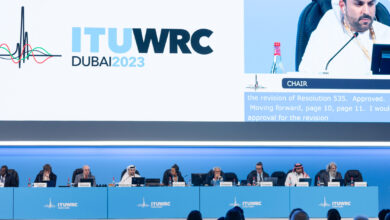India’s telecom regulator moots passive infrastructure sharing among service licensees

The sector regulator further mooted that telecommunication service licensees should also be allowed to share all kinds of active infrastructure elements owned and operated by them with other telecommunication service licensees as per the scope of their services.
The recommendations were part of the regulator’s views on ‘Telecommunication Infrastructure Sharing, Spectrum Sharing, and Spectrum Leasing’ released on Wednesday.
TRAI said the implementation of the recommendations will help telecom service providers with greater cost efficiencies and improved time to market. It would also enable telecom service providers to offer better quality of service and wider coverage. At present, only spectrum trading and intra-band spectrum sharing are permitted in the country.
For a more efficient utilisation of the scarce spectrum, the regulator has recommended that spectrum leasing and inter-band spectrum sharing should also be permitted.
“Telecommunication service licensees should be allowed to share the passive infrastructure such as building, tower, electrical equipment including battery and power plant, dark fibre, duct space, Right of Way, etc. owned, established, and operated by them under the respective licenses with all types of telecommunication service licensees,” TRAI said.
In future, Universal Service Obligation Fund (USOF) projects, the Department of Telecom (DoT) should include a provision in the agreement that would require the universal service provider not to refuse the sharing of passive infrastructure laid under the project with at least two other telecom service providers on a transparent and non-discriminatory basis, according to suggestions. Even in the assigned projects of USOF, the DoT should explore the feasibility of issuing instructions to USPs not to refuse to share infrastructure laid under the project with at least two other telecom service providers.
According to the regulator, the recommendations on mandatory sharing of passive infrastructure laid under the Universal Service Obligation Fund projects are aimed at extending the benefits of telecom coverage in underserved areas to more than one telco through effective utilisation of the government-funded infrastructure.
“In the interest of consumers, a telecom service provider, which has built mobile network infrastructure in the remote and far-flung areas of the country with full or partial funding from the government under USOF (or Digital Bharat Nidhi), should be mandated to allow roaming to other TSPs (telecom service provider) on its network in such remote and far-flung areas initially for a period of three years,” TRAI said in a release.
Inter-band access spectrum sharing between access service providers in an LSA (licenced service area) should be permitted. “(The) DoT should explore the possibility of implementing authorised shared access (ASA) technique-based spectrum sharing in India, under which the spectrum assigned to government agencies or other entities (non-TSPs) in the globally harmonised spectrum bands for IMT services can be assigned to access service providers as secondary users,” it said. The regulator has also recommended that leasing of access spectrum should be permitted among access service providers.
Also Read: Experts discuss latest developments in telecom and what lies ahead



